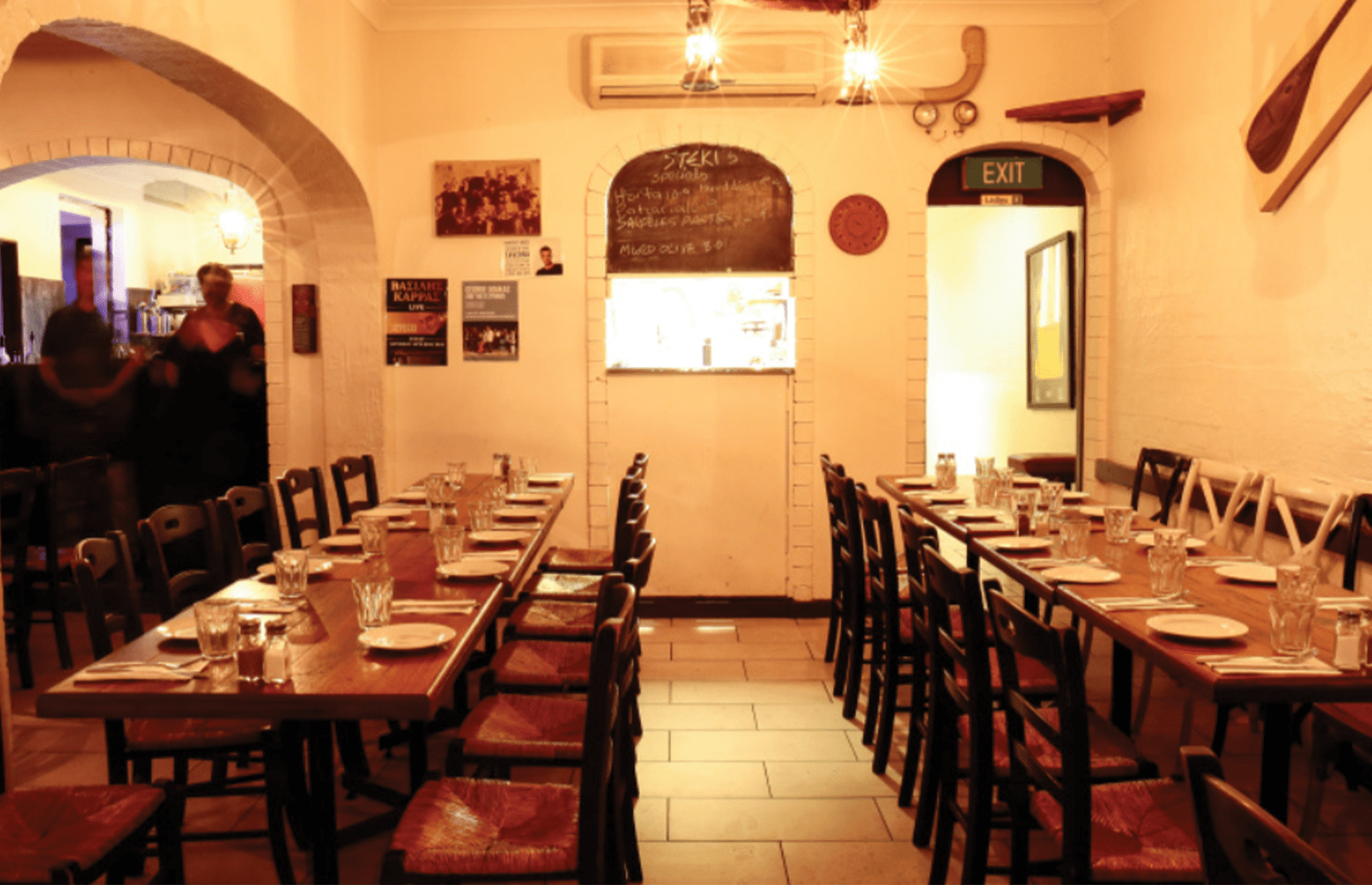One of the great inevitabilities of my life: my family will go to Steki Taverna in Newtown, tucked away in a hole in the wall behind Guzman y Gomez, unassuming and silent until you open the doors to an explosion of music and laughter. My mother will get a cheeky glint in her eye and point to the whitewashed column holding up the middle of the restaurant.
“You see that spot there? That’s where your father and I got together,” she will yell over the musicians and the loud, theatrical conversations filling the air around us.
“Oh my God, we know,” my brother and I will groan melodramatically while my dad chuckles along. “You don’t have to tell us every time — we know!”
And yet, every time I drunkenly drag my friends to Steki for an ouzo that will surely finish us off for the night, I point to the column and paint a picture of my young parents, sweaty from hours of dancing and debate, striking up a conversation.
Steki’s closure two weeks ago, after 39 years of operation, represented the death of a Sydney I never knew, but could nonetheless pretend to escape to. The cane chairs and kitschy Greek wall art created a comforting, profoundly Greek-Australian aesthetic, giving the impression of having walked through a wormhole back to the 80s — or at the very least to the home of a grandparent or elderly relative. But Steki’s real value lay beyond its aesthetic attributes, in the stories that have been seeping into its walls every night for almost four decades.
In the years after Steki opened, it became the spot for local Greek Australians and recent migrants, including my parents, many members of my family and lifelong family friends. Many of these customers, which included students from the University of Sydney, were engaged in the explosion of transformative cultural and political activity occurring in Greece in the mid-to-late 20th century, and spent hours of their youth in Steki drinking late night booze and coffees and dancing to the bouzoukia, engrossed in the ancient Greek ritual of political debate so rigorous and passionate it borders on chaotic. To visit Steki was to immerse myself in this bygone version of the Inner West, in an era where cultural cringe hadn’t yet infected young Greek Australians as it has amongst my generation.
Any scraps of Newtown’s old school multicultural identity have been eroding for years, edged out by rising housing prices and whatever horrifically misguided fusion food place takes up residence at 172 King Street on any given week. Although the owners have implied that Steki will open its doors elsewhere, the hole in the wall on O’Connell Street was the final frontier of the Inner West’s old school multiculturalism, aside from the odd shop in Marrickville (and, let’s be honest, how much longer are they going to be able to survive?). How many connections remain to an Inner West where multiculturalism was a genuine state of being, rather than a marketing tool, a palatable sprinkle of spice on its image of diversity and inclusivity?
Steki was completely unique in both form and purpose in today’s Newtown, and its closure represents a huge loss of Newtown’s history and identity. But its legacy lives on in those who passed through its doors; it helped cultivate an appreciation for contemporary Greek culture in Sydney’s Greek Australians, and the quintessential Greek fierceness with which we love and value our families both given and chosen. And if I’m being too sentimental and dramatic about all this, at the very least I’m sure my mother will continue to find an occasion to tell the story of where and how her and my father got together.





